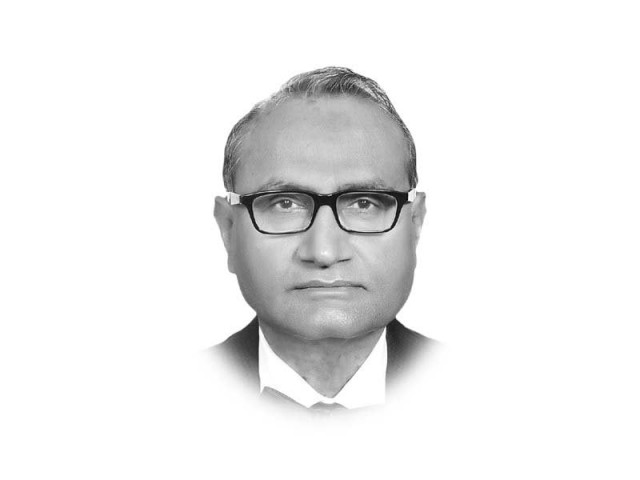Hernando Colón and Zahid Dar
o Zahid Dar, read on, while we catalogue the technocrats to step into Ishaq Dar’s shoes

pervez.tahir@tribune.com.pk
I can’t remember exactly where I met him first. It was either at Safdar Mir’s office at The Pakistan Times or Kishwar Naheed’s house in Krishan Nagar. But he was almost everywhere, Pak Tea House, Halqa Arbab-e-Zauq, Lord’s Restaurant, Classic Bookshop at Regal Chowk and the literary fora of the Government College, Lahore. He himself joined the Government College in the early ’50s, but could not go on to become a true-blood Ravian. Economics was one of his subjects in intermediate.
The dismal science put him off so much that he avoided sitting the final examination. He was an avid reader. Though literature was his first love, his reading interests went well beyond. Quite early in life, his own creativity found expression in some excellent pieces of poetry. Once I ran into him at one of the old book stalls in the Old Anarkali. “When will your next masterpiece appear?” His reply shocked me. “I have stopped writing,” he said in his usual mild manner. “I think I have not read enough to be able to write.” This faltu admi, as the celebrated story teller Intizar Hussain described him in a sketch, has been reading ever since. By any account, he has to be the most well-read person in the country.
The feature in the Cambridge University E-Newsletter was about somebody with a similar obsession or bibliomania. Five hundred years ago, Hernando Colón, the son of Columbus, the discoverer of America, also wanted to read every book in the world. He travelled all across Europe to buy and read books. In his hometown, Seville, Spain, this huge collection — Biblioteca Colombina — may be viewed in a library housed in a wing of Seville Cathedral.
The British Academy commissioned Edward Wilson-Lee of the Faculty of English and the Centre for Material Texts to carry out research on the life of Colón. According to Wilson-Lee, “Each time he (Colón) bought a book, he would meticulously record where and when he bought it, how much it cost and the rate of currency exchange that day. Sometimes he noted where he was when he read it, what he thought of the book and if he’d met the author. As pieces of material culture, each is a fascinating account of how one man related to, used and was changed by books.” HarperCollins is publishing biography of Hernando Colón The Catalogue of Shipwrecked Books in the coming year. Subsequently, the Yale University Press will publish the study of the library he has co-authored with José María Pérez Fernández of the Universidad de Granada.
Interestingly, Colón’s craze for books is being termed the precursor of what is now known as the challenge of large data. It was, so to speak, was the first search engine. An idea of the present-day challenge can be had from Google’s attempts in this direction. Since 2005, it has been able to catalogue 129,864,880. So Zahid Dar, read on, while we catalogue the technocrats to step into Ishaq Dar’s shoes.
Published in The Express Tribune, November 24th, 2017.
Like Opinion & Editorial on Facebook, follow @ETOpEd on Twitter to receive all updates on all our daily pieces.















COMMENTS
Comments are moderated and generally will be posted if they are on-topic and not abusive.
For more information, please see our Comments FAQ